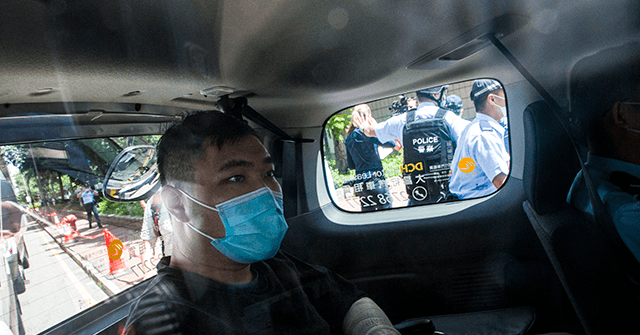

Hong Kong’s High Court on Thursday denied a trial by jury for the first person charged under the city’s national security law.
The Hong Kong High Court ruled May 20 to uphold an earlier decision by Hong Kong’s Department of Justice denying Tong Ying-kit, 24, a trial by jury.
Hong Kong Secretary for Justice Teresa Cheng informed Tong’s legal team in February his trial would be heard by a panel of three judges appointed for national security law cases instead of a jury. The justice secretary cited “the personal safety of jurors and their family members,” as a reason for the decision, which marks a departure from traditional law practice in Hong Kong.
“Hong Kong’s Judiciary describes trial by jury as one of the most important features of the city’s legal system, a common-law tradition designed to offer defendants additional protection against the possibility of authorities overreaching their power,” Reuters noted Thursday. Hong Kong High Court trials are “typically heard by a judge and seven to nine jurors,” according to Hong Kong Free Press (HKFP).
Tong filed for a judicial review of the decision to deny him a trial by jury in March. Tong’s counsel, Philip Dykes, said his client “had not been given the right to be heard before the [Hong Kong Justice] department made its decision, which was illegal and unreasonable,” according to Hong Kong’s Stand News.
Hong Kong Justice Secretary Teresa Cheng invoked Article 46 of Hong Kong’s national security law to deny Tong a trial by jury. Article 46 states a jury may be replaced by a three-judge panel if a case involves state secrets, foreign forces, or could potentially pose a safety threat to jurors and their families.
Tong stands accused of “inciting secession and terrorist activities” after he allegedly drove a motorcycle into a line of Hong Kong police officers while displaying a flag reading “Liberate Hong Kong, Revolution of Our Times” on July 1, 2020. Tong was participating in a Hong Kong pro-democracy protest at the time of the incident, which took place on the first day that the city’s national security law went into effect.
Beijing imposed a national security law on Hong Kong last summer in part to stamp out the city’s then-year-long pro-democracy protest movement. The law created four new crimes — secession, subversion, terrorism, and collusion with foreign forces — punishable by a maximum sentence of life in prison.
Hong Kong police have arrested 107 people for allegedly committing national security law offenses since last summer. Security officials have so far charged 57 people under the law, the majority of whom “remain behind bars pending trial,” HKFP reported on May 20.
 RSS Feed
RSS Feed















 May 21st, 2021
May 21st, 2021  Awake Goy
Awake Goy  Posted in
Posted in  Tags:
Tags: 













